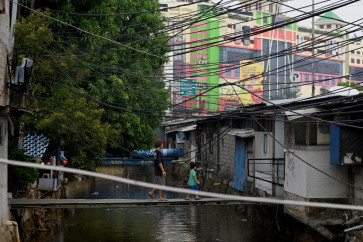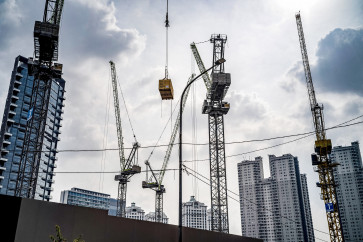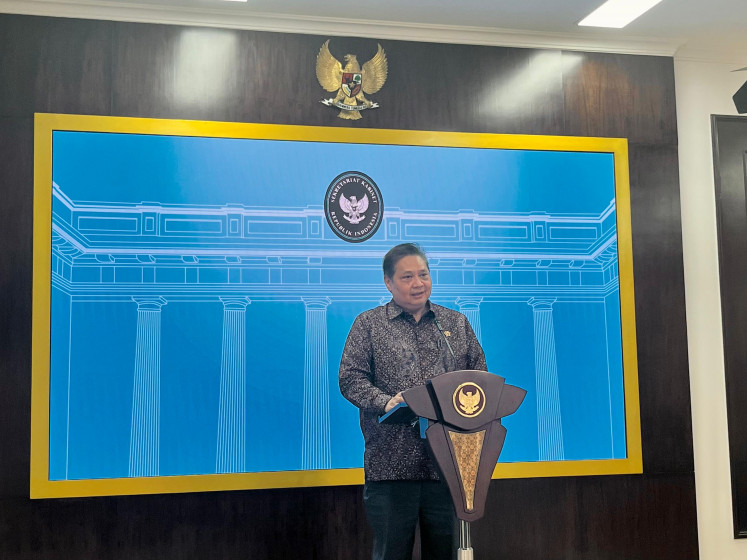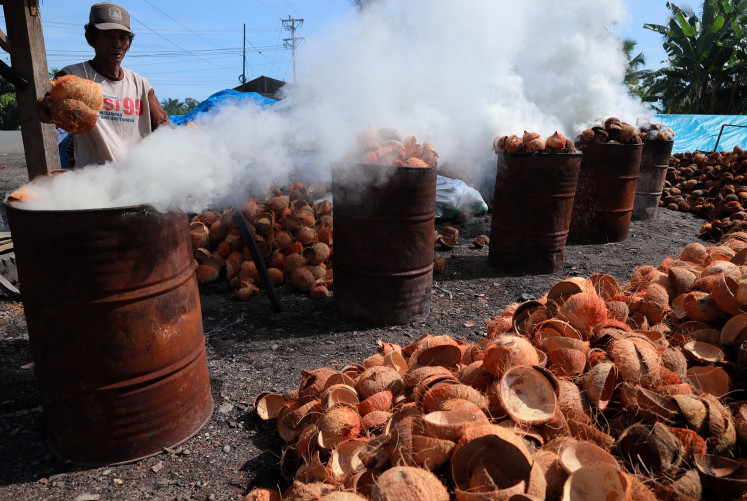Singapore LNG policy won’t affect RI exports: BPMigas
Singapore’s plan to build a liquefied natural gas (LNG) receiving terminal will not affect Indonesia’s gas contracts with the neighboring country, upstream oil and gas regulator BPMigas said
Change text size
Gift Premium Articles
to Anyone

S
ingapore’s plan to build a liquefied natural gas (LNG) receiving terminal will not affect Indonesia’s gas contracts with the neighboring country, upstream oil and gas regulator BPMigas said.
The LNG plant does not aim to cut the existing supply from Indonesia, but it is built to give more flexibility for Singapore so that the country will not only depend on gas delivered through a pipeline, BPMigas spokesperson Gde Pradnyana said.
“Moreover, as domestic demand for gas grows, we have not had any new gas export contracts for Singapore since 2005. The current delivery is just the realization of existing contracts, including from Natuna and the Grissik field in South Sumatra,” he told The Jakarta Post on Monday.
“Some of the contracts will end between 2015 and 2017, but others will expire after 2020,” he continued.
Gas exports to Singapore were very profitable because the price referred to international levels, Gde said. With the current crude oil price, the gas price stood at between US$15 and $17 per million British thermal unit (Btu), he said, adding that the domestic gas price is only between $5 and $6 per million Btu on average.
A report from Reuters says that Singapore’s planned LNG terminal will be able to handle sufficient imports of fuel to fulfill all the country’s power generation needs, even if piped gas supply contracts with Indonesia and Malaysia are not extended.
Singapore depends on natural gas for around 80 percent of its power generation needs, with the bulk sourced from Indonesia and Malaysia under long-term contracts.
“Supply will come under pressure because of growing domestic gas demand in Malaysia and Indonesia. What we will do is ensure sufficient capacity to import LNG to meet all of our gas demand,” Chee Hong Tat, chief executive of Singapore’s Energy Market Authority, said as reported by Reuters.
Singapore officials have previously said the new terminal was designed to supplement piped gas. Chee declined to say when the piped gas contracts end.
Indonesia and Malaysia were the second and third largest LNG exporters last year, but the two, facing dwindling output from aging fields and rising demand from power plants, are looking at imports to meet demand in some areas.
Singapore currently buys almost 7 million tons per annum (tpa) of piped gas from its two neighbors, Chee said.
The LNG terminal, which comes into operation in the first quarter of next year with two storage tanks, will be able to handle 6 million tpa of gas imports by early 2014 when a third tank is added. The facility can accommodate up to 7 tanks with a total capacity of 15 million tpa.
Chee also said that the government is considering building a second LNG import facility in the longer term, but did not elaborate.
Singapore plans to use the new terminal on Jurong Island to facilitate gas trading and bunkering if spare capacity remains after meeting the country’s energy needs.
“How much LNG we need to meet domestic demand will determine how much we can support ancillary services such as storage, trading and bunkering,” said Chee.
Britain’s BG Group has filled orders for almost 90 percent of its exclusive 3 million tpa franchise to import LNG through the terminal, less than three years into its 20-year deal.
The government is studying its options for procuring additional volumes of the super-cooled gas after BG fulfills its 3 million tpa franchise and will seek feedback from the industry later this month, Chee said.









